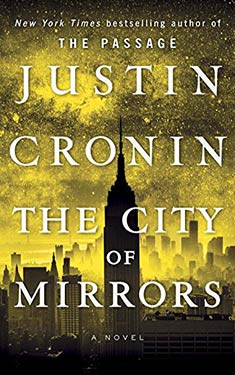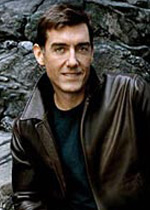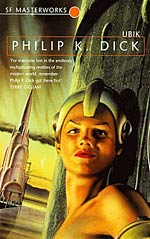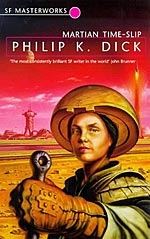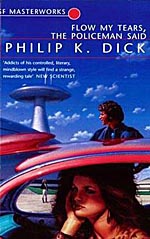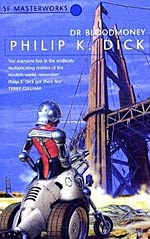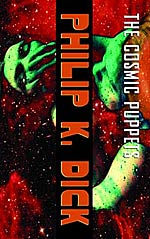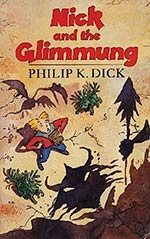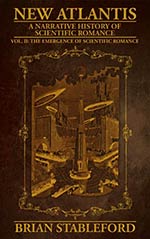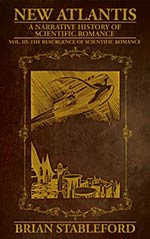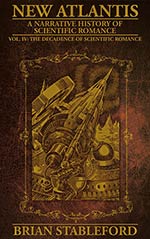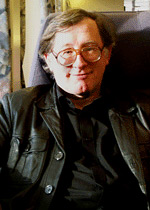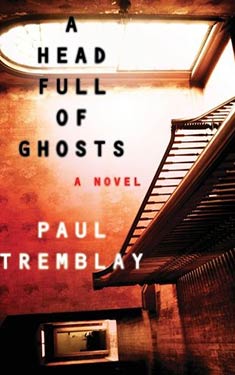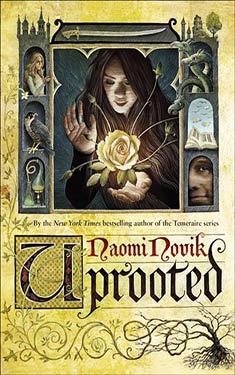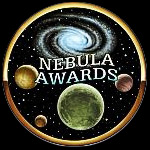The City of Mirrors by Justin Cronin
Note: This review contains spoilers.
The year was 2010. The vampire fiction genre was still trying to recover from the horror that was the “Twilight Saga.” In among these sparkly vampires came The Passage by Justin Cronin. The vampires in this novel had more in common with “Nosferatu” than with either Edward Cullen or Count Dracula. The Passage was followed in time by The Twelve, and now six years after we the reader were introduced to Amy and her intrepid band of vampire hunters, this series comes to a shattering conclusion with The City of Mirrors.
I knew this novel was going to be a challenge from the start. Justin Cronin is not the easiest author to read. His tendency to play fast and loose with the flow of time can be a challenge to read. Chapters do not flow in a chronological order, jumping from before the viral outbreak, to 20 years after the events in the second book, The Twelve, and then forward 1,000 years after the outbreak. But because his world building and character development are surpassed by none, this reader at least is willing to wade through the chronological ping pong. Because I care about the characters and the gloriously detailed world these characters inhabit.
Mr. Cronin must thoroughly enjoy playing fast and loose with his reader’s emotions. All the major heroes in the story have tragic and heartbreaking back stories. In The City of Mirrors the reader is reintroduced to Timothy Fanning, patient zero of the outbreak. The author does a wonderful job of showing us how broken Mr. Fanning was before he was infected. I even started to feel sorry for him. [And then he killed his former student.] All of a sudden, due to one action by Fanning most of the sympathy I had for him was yanked from me like the proverbial rug. Mr. Cronin goes on to further twist that sympathy to its breaking point with every action Fanning/Zero performs in the entire second half of the book.
As in the second novel in the series, there is a strong element of religion, or at least some kind of omnipotent presence guiding the actions of the characters. This should not dissuade the non-religious reader from this book. Left Behind this ain’t. In fact, I would go so far as to say any evangelical who reads this book is going to be steaming mad by the ending. Even your basic Christian may find issue with the complete lack of devine retribution. [Fanning dying and being able to spend eternity in his happiest memories.]
The irony of this novel is that Justin Cronin tried his damnedest to give this a happy ending, and in general he succeeded. Because for him the afterlife appears to be for everyone. [Living in the memory that is happiest for the person.] Humanity survives and flourishes, the heroes both living and dead are rewarded in the best way they can be, and the vampire virus is beaten back.
But because this is Justin Cronin, the one character who deserved peace and happiness is denied this reward. The final moments of this novel are perhaps some of the most bittersweet pages I have ever read. When the final chapter was finished I set the book down and wept. I’ll be honest, Mr. Cronin may have a hard time topping this series with his next book.
6 out of 5 stars (seriously, this book deserves more than 5 stars)
PKD Bonanza at Audible
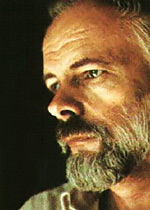 Ever since 2002, I’ve been buying classic science fiction at Audible.com. I love listening to all the great science fiction stories I first discovered in the 1960s and 1970s. I now prefer to hear a book over reading it. I’m not much of a reader — my inner voice is so dull compared to professional audio book narrators. Listening makes a story come alive in a way that reading with my eyes never did. And it’s a special pleasure to “reread” all my favorites this way because it makes them feel new again.
Ever since 2002, I’ve been buying classic science fiction at Audible.com. I love listening to all the great science fiction stories I first discovered in the 1960s and 1970s. I now prefer to hear a book over reading it. I’m not much of a reader — my inner voice is so dull compared to professional audio book narrators. Listening makes a story come alive in a way that reading with my eyes never did. And it’s a special pleasure to “reread” all my favorites this way because it makes them feel new again.
On April 28th Audible.com released 11 Philip K. Dick novels, a 5-volume collection of his complete short stories, and one novella to their already extensive collection of PKD on audio. I assume the 5-volume audio collection contains the same stories that old print edition I own, The Collected Stories of Philip K. Dick published by Citadel Twilight back in the 1990s. Each audio volume has been re-titled from the Subterranean Press edition. Audible, as it often does with short story collections, doesn’t list the stories, and that’s annoying. Each volume is around 20 hours long. Check out the sample recordings. This is a huge dose of PKD – almost 100 hours – maybe an overdose. But I’m going to eventually buy them all.
What’s really exciting for me, is they have published six of the nine literary novels on audio that haven’t been produced before. These include (with date written and date first published):
- Voices from the Street (1952/2007)
- Mary and the Giant (1956/1987)
- Puttering About in a Small Land (1957/1985)
- In Milton Lumky Territory (1958/1986)
- Humpty Dumpty in Oakland (1960/1987)
- The Man Whose Teeth Were All Exactly Alike (1960/1975)
Previously published on audio were the other three mainstream novels.
- Gather Yourselves Together (1952/1994)
- The Broken Bubble (1956/1988)
- Confessions of a Crap Artist (1959/1975)
I wrote about PKD’s literary novels at SF Signal. Confessions of a Crap Artist is my all-time favorite Dick novel. He might have put more work into his literary novels, because at one time he wanted to break out of writing science fiction and go mainstream. It would have meant more money, and he would have proved himself as a “real” writer. Now he’s probably the most famous SF novelist on the planet.
Audible also came out on the 28th with (some are books with new narrators, and some are new to audio):
- Ubik
- Martian Time-Slip
- Flow My Tears, the Policeman Said
- Dr. Bloodmoney
- The Cosmic Puppets
- “Nick and the Glimmung” – novella
Here are PKD’s novels – red means there’s no audio edition at Audible.
- Gather Yourselves Together (1950)
- Voices from the Street (1952)
- Solar Lottery (1954)
- Mary and the Giant (1954)
- The World Jones Made (1954)
- Eye in the Sky (1955)
- The Man Who Japed (1955)
- The Broken Bubble (1956)
- The Cosmic Puppets (1957)
- Puttering About in a Small Land (1957)
- Time Out of Joint (1958)
- In Milton Lumky Territory (1958)
- Confessions of a Crap Artist (1959)
- The Man Whose Teeth Were All Exactly Alike (1960)
- Humpty Dumpty in Oakland (1960)
- Vulcan’s Hammer (1960)
- Dr. Futurity (1960)
- The Man in the High Castle (1961)
- We Can Build You (1962)
- Martian Time-Slip (1962)
- Dr. Bloodmoney, or How We Got Along After the Bomb (1963)
- The Game-Players of Titan (1963)
- The Simulacra (1963)
- The Crack in Space (1963)
- Clans of the Alphane Moon (1964)
- The Three Stigmata of Palmer Eldritch (1964)
- The Zap Gun (1964)
- The Penultimate Truth (1964)
- The Unteleported Man (1964)
- The Ganymede Takeover (1965) with Ray Nelson
- Counter-Clock World (1965)
- Do Androids Dream of Electric Sheep? (1966) (as Blade Runner)
- Nick and the Glimmung (1966)
- Now Wait for Last Year (1966)
- Ubik (1966)
- Galactic Pot-Healer (1968)
- A Maze of Death (1968)
- Our Friends from Frolix 8 (1969)
- Flow My Tears, the Policeman Said (1974)
- Deus Irae (1976) with Roger Zelanzy
- Radio Free Albemuth (1976; published 1985)
- A Scanner Darkly (1977)
- VALIS (1981)
- The Divine Invasion (1981)
- The Transmigration of Timothy Archer (1982)
Thank you Audible, and all the publishers. I can listen to practically everything PKD wrote.
Can Science Fiction Save Us?
This essay was originally written for SF Signal but was rejected because it discusses religion and politics. I published it on my blog Auxiliary Memory but it got little notice. I thought Worlds Without End readers might be the proper audience. I’m afraid it still references religion and politics, but I’ve rewritten it to be more respectful.
Science fiction has always used world-wide worries to inspire story ideas, and since we have more problems than ever, no science fiction writer should have writer’s block. Science fiction about climate change is a growing sub-genre, and our lists of future-shaking events keeps growing. Any current concern in the news can be extrapolated into the future, becoming a muse for science fiction. But how effective is fiction at solving real world problems? Can science fiction save us?
When I was growing up the future was so bright we had to wear mirror shades. Now, our tomorrows are clouded over by menacing speculative storms. Most of the 7.3 billion passengers on spaceship Earth are so preoccupied with their day-to-day survival that any thoughts about the future are reserved for escapes into imaginary wonderlands. And I can dig that too — who desires realism when its dreary? Anyone who has seen Sullivan’s Travels, a Preston Sturges film about The Great Depression misery, knows that people don’t want stories with messages, but stories that let you forget your problems. I assume Lois McMaster Bujold has more fans than Paolo Bacigalupi.
Science fiction has always taken two paths. The first, and most common, is to entertain. The second, and harder to travel, is to philosophize about the discoveries of science and imagine what they mean to the future. Science fiction has always produced wild speculations, but for most of its history, was never taken seriously. SF was often ridiculed, even though it can be considered a cognitive tool for a highly specific task. Serious science fiction can warn us about emerging dangers through extrapolation, but it also has the potential to create desired goals with creative speculation.
Yet, I’ve got to wonder if science fiction can save us. When I was growing up you’d hide your Heinlein inside a copy of Lady Chatterley’s Lover to avoid the embarrassment of being caught reading science fiction. Science fiction was childish fantasies for weirdo kids. Trufans rationalized science fiction was serious stuff, claiming it prepared readers for the future, but that was mostly laughed at. Things changed May 25, 1977 when Star Wars came out, and science fiction became the favorite form of fairy tale for the information age. Now, billions say they love Sci-Fi, but few take it seriously. Should they?
The future is shaping up to be everything we never wanted. Maybe it’s time to reconsider science fiction’s role. Christians believe that studying the teachings of Jesus can save people, at least after they die. I’d like to believe studying science fiction could save our species before we reach self-extinction. I’m not asking that science fiction become boring and pedantic. I’m just wondering if it’s possible for science fiction to imagine desirable futures that are sustainable. Project Hieroglyph was one attempt.
Novels like Among Others by Jo Walton and All the Birds in the Sky by Charlie Jane Anders convey how painful it used to be growing up nerdy. SF fans were outcasts. In my day they’d call us zeroes. But now that the geeks have inherited the Earth, science fiction fans seem to have taken over the world. Is it’s appeal large enough to be influential? Science fiction must compete with two older literary traditions, The Bible and The Quran, for explaining reality. Science offers the only consistent explanation of reality, but evidently the majority of folks on this planet can’t comprehend it. Science fiction is only slightly more rigorous than religion, but it might be a step in the right direction since religion desperately seeks to focus on the past.
Just because pop culture has embraced comics and science fiction, doesn’t mean they have social impact. Can any novel change society? Maybe. Consider George Orwell’s Nineteen Eighty-Four. That tale of Big Brother and newspeak did more to undermine communism than all the John Birchers put together. Uncle Tom’s Cabin by Harriet Beecher Stowe shamed a nation against slavery, so we know novels can help reshape morality. How many Victorian minds were blown by H. G. Wells? And didn’t Catch-22, M*A*S*H and Slaughterhouse-Five convince many Americans to turn against the Vietnam War?
Every day the mass media brings us more stories about how the future is going to bring humanity retribution for its evil ways. Political conservatives and faithful fundamentalists from around the globe have dedicated themselves to denying science. If billions refuse to listen to scientists, why should they pay attention to science fiction? Christianity uses Hell as an effective tool to sell salvation, so why don’t frightening futures work for science fiction? Of course Christianity has made the purchase price of salvation so ridiculously cheap that most people figure why not buy. Saying “I believe” is a micro-payment compared to the painful expense of self-disciplining our souls. This isn’t an atheist’s jab at religion, but lessons I learned from reading The Cost of Discipleship by Dietrich Bonhoeffer. Anyone who has studied The Bible knows how the prophets plead for their followers to take their warnings serious. History shows few people heeded the prophets, so I tend to think few now will pay attention to science fiction.
Where the rubber hits the road to tomorrowland is the fact that we all need to change the way we live. Most people can’t lose weight even when the incentive is not to die a miserable death. As a species we’re very adaptable at surviving in diverse environments, but we can’t adapt ourselves to stabilize the environment. In 1968, I read Stand On Zanzibar by John Brunner. I was horrified by his vision of 2010. Brunner claimed two common themes would exist, worldwide terrorism, as well as daily TV news stories about crazed individuals committing mass killings. I really didn’t want to grow up to live in that future. But we all have. Could we have studied Brunner in the sixties to avoid the now in which we live? Brunner didn’t offer any prophecy. By the way, prophecy isn’t about predicting the future, but about convincing people how to live, so as to create a desired future. Read The Prophets by Abraham J. Heschel to see what I mean. Can any science fiction novel be truly prophetic? Science fiction can create elaborate extrapolations leading to scary tomorrows, but can it find paths to greener pastures? The prophets of history tried to convince folks to build a better future, and I think that’s what some science fiction writers want to do too.
How often has the fate of the Earth been the plot driver of science fiction? 99% of the purpose of science fiction is entertainment, and even that 1% of serious speculation needs to be entertaining secondarily. Some science fiction writers have been prophets. Unfortunately I have to say this again, as people who read The Bible know, few people listen to prophets, which probably answers my title question.
I bring up this question now after reading All the Birds in the Sky by Charlie Jane Anders, the first SF/F book I read for 2016. Anders’ book is getting great reviews and buzz around the net. It’s a wonderful YA/SF/F/Literary mashup about many things, including the forces of magic and the forces of science separately fighting climate change. Not to give anything away, but I found their desperate solutions rather horrifying, which I think was Anders intention, but other recent science fiction stories have also come up with similar solutions that are even scarier.
The most extreme example is Interstellar, which preaches sacrificing all to build spaceships to seed other worlds before Earth collapses. Their logic is we’ve used up Earth, so let’s abandon it and go find a new home. There was never any suggestion that we try to save our planet. It’s the ultimate example of disposable consumerism. Our home world is a used Kleenex, so toss it out and get a new one.
In Seveneves, the latest novel by Neal Stephenson, the Earth is destroyed by an astronomical event, but humans were given enough time to build a fleet of Noah’s arks in space. This avoids the ethical issue of self-destruction. The story is extremely optimistic about our technological potential. But one of the common reasons now given to justify the colonization of other worlds is that we need to get all our genetic eggs out of one basket. Even scientists like Stephen Hawking are promoting this idea. And it’s logical. We could claim that science fiction inspired this philosophy. If we ever spend the money to colonize the Moon or Mars, we can give science fiction the credit. However, humans haven’t left Low-Earth orbit for over forty years, even after an explosion of science fiction popularity since the last man walked on the Moon. Taking care of Earth should be our prime priority — but it seldom is in science fiction. When will everyone realize that Earth might be our only home for millions of years?
We’re starting to see more science fiction deal with climate change. One very vivid novel last year, The Water Knife by Paolo Bacigalupi, focused on water wars. Bacigalupi doesn’t offer any instructions on how to avoid that future, but does paint such a horrifying picture of climate change’s side-effects that he’s trying to scare us straight. The novel got some good reviews, but I’ve yet to meet anyone else who’s read it and haven’t heard any buzz about it on the net.
Is preaching fire and brimstone futures the only tool science fiction has to convince us to avoid our life of sin? And let’s fess up here, climate change, mass extinction, polluted land, sea and sky, economic inequality, sexism, racism, xenophobia, and all the rest, are our sins. Yes, the world sometimes ends in a comet collision, gamma-ray burst or super-volcano eruption, but most of the time, Earth gets trashed by us.
There’s a growing library of climate change science fiction (Cli-Fi). But will reading such stories make us consume fewer resources? How many people read science fiction? Well, not that many. But multitudes go to the movies to see science fiction. What if HBO offered a mini-series based on The Windup Girl by Paolo Bacigalupi? Would it influence politics and lifestyle? The Windup Girl illustrates the results of climate change, monoculture farming, and using up all the oil. Even though it’s a very colorful future, it’s not one that most people would visit if they had a time machine.
All the governments around the world are working on reducing C02 in the atmosphere. Ninety-eight percent of the scientists and a large percentage of the general population know about the dangers of increased C02. The problem is many people refuse to believe there is a problem, including the Republican Party. Would more science fiction illustrating what life might be like after “visiting the iniquity of the fathers on the children and the children’s children, to the third and the fourth generation” make a difference? If all of us believed the science of climate change absolutely, would we change the way we live? Or are too many Homo sapiens fatalists?
1998 brought two films, Deep Impact and Armageddon about big rocks crashing into our planet. Since then, governments around the world have been spending money to develop early warning systems. And can’t we claim all the SF stories about malevolent emerging AI made the current client of skepticism of artificial intelligence what it is today? Hasn’t the phrase “living off the grid” come from SF-awareness? Haven’t all the Preppers gotten their philosophy from science fiction? Didn’t we go to the Moon because of science fiction? Cold war politics paid for the Apollo program, but wasn’t science fiction the original inspiration?
Science fiction can give us thousands of scenarios about ecological catastrophes, mass extinction events, and AIs transforming society, but are they useful? Do we all just read the stories to be thrilled, and then continue on with our excessive lifestyles, ignoring daily species extinctions, and even wanting our computers to get smarter and take over more jobs?
I have to be cynical here. Could science fiction be like religion, in that we’re willing to talk the talk, but not walk the walk? How many of the faithful swear absolute belief, yet make no attempt to live divinely? How many eco-evangelists live green lives? For the prophets of science fiction to succeed they must first imagine livable lifestyles, and then convince readers to live them. And isn’t the record for famous Biblical prophets something like Prophets 0, People 17? I don’t think we escape our fate by self-flagellation and choosing to live like ascetics. We need visionaries who can imagine new kinds of urban lifestyles that protect the environment yet offer self-sustaining forms of abundances to seek, rather than our rampant destructive consumerism we chase now.
Science fiction has always excelled at imagining Hells, but it’s awful at inventing Heavens. In fact, dystopias are what kids love today. Why? Isn’t it kind of sick that the chosen setting for escapist literature is a dystopia? Why have utopias gone out of fashion? Sure utopias are impossible almost by definition, but getting close might be possible. Utopias were popular hundreds of years ago, but I guess most of humanity gave up on Heaven on Earth back in the 19th century.
Donald Trump campaigns with the slogan “Make America Great Again” so we know a better future is a popular want because of his success. Yet, Republicans are so adamant about no new taxes that they are causing the country to slide into ruin and disrepair. You can’t make a great nation by penny pinching. All the anti-tax revolutionaries have done is ruined K-12 and higher education, neglected the infrastructure, deflated the middle class, fired first responders, teachers and other valuable governmental employees, gutted libraries, let parks run down, defund science and research, and the list goes on and on. America was great when we had the Apollo Moon program, or when we were fighting WWII—and we all paid a lot more in taxes. We weren’t cheap, and knew building a great nation costs money and requires sacrifice.
We have the scientific knowledge and technology to solve all our problems, but we don’t. Why? Because we’re not unified. All across the globe populations are divided between conservatives and liberals. Most of the Muslim world, and half the Christian, want to return to the past, to embrace an Old Testament view of reality. We all live in the same reality, but we each perceive it differently. Until we reach some kind of consensus about the nature of reality, we’re not going to solve our problems. This is where pop culture comes into play, it’s a kind of peer pressure of ideas.
At some point we have to do what the prophets ask, or face extinction. Did all the prophets of the past fail because they imagined unappealing lifestyles? Evidently convincing people to do what’s hard never succeeds over people choosing to do what they feel like. Can science fiction ever make us disciplined?
I didn’t write the above to make a political point, but to show that we lack vision for making life better. Most conservatives are arming themselves for the Armageddon, while liberals focus on their own brand of gloom and doom. Science fiction needs to stop thinking about the end of the world and focus on the goal of surviving a million years on this planet. If we don’t think about the future, then the future becomes whatever we’re doing without thinking.
JWH
Forward To The Past: The History of Science Fiction
In an essay I recently wrote for BookRiot, “The Genesis of Science Fiction,” I wondered just how old is science fiction? Many SF historians say Frankenstein by Mary Shelley is the first SF novel, while others dredge up stories as far back as classical Greece and Rome. I speculate science fiction began in prehistory, and look to The Book of Genesis for clues before we wrote things down.
Of course, what I wrote was wild speculation. Brian Stableford, in his new four volume science fiction history, New Atlantis: A Narrative History of Scientific Romance, carefully documents how science fiction was well entrenched in the 19th and early 20th century, way before it got the name science fiction. Back then, it was sometimes called Scientific Romance. Stableford’s four volumes are subtitled:
- The Origins of Scientific Romance
- The Emergence of Scientific Romance
- The Resurgence of Scientific Romance
- The Decadence of Scientific Romance
These books are not for casual science fiction fans, but for readers who love science fiction so much they want to know its deep history. Michael Dirda reviews them in more detail in his essay, “Formerly Future: The Lost World of the Scientific Romance.” I’ve always been keen on the history of our genre, and while these books are dry, technical and philosophical, I find them enlightening. Probably most readers feel science fiction is a modern invention, that emerged with atomic bombs, space travel and computers in the 1950s. You rarely see any mention of science fiction in popular culture before 1950, and our genre didn’t reach universal fame until 2001: A Space Odyssey and Apollo 11 in the late 1960s.
We think of science fiction being based on science. We want to believe that science fiction is different from fantasy, because we believe concepts imagined in science fiction are possible, while the creations of fantasy are not. But when you study the history of fiction, and the history of our species, you realize the psychology of our desires are revealed in both genres. One example is when Stableford discusses fantasy portals. Fantasy novels need a fictional gimmick to get regular people into a fantasy-land. For example, C. S. Lewis uses a wardrobe as a portal to Narnia. Star Trek has the transporter and Hyperion Cantos has the farcaster. Science fiction readers want to believe such machines are possible in the future. But is that realistic? Aren’t they really fantasy portals for science fictional fantasies? Stableford’s books go into that kind of analysis.
According to Stableford, 19th century writers, especially British and European, used science fiction to explore philosophical issues. He suggests Americans were the ones that got the idea of actually inventing all the fictional devices that the Europeans thought of as mere tricks to get their characters into the future or to other words. H. G. Wells didn’t believe in time machines, but he did believe in evolution, cosmology and geology, and he wanted to speculate what that knowledge implied.
I recommend New Atlantis for fans who want to be scholars of our genre. For average fans who just want a great overview of our classics, I recommend How Great Science Fiction Works by Gary K. Wolfe, a Great Course from the Teaching Company. It can be had cheaply at Audible.com for one credit. I describe the course and the books it covers in an essay at SF Signal.
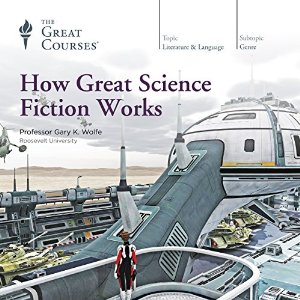 When I read old Radium Age science fiction like Goslings (1913) by J. D. Beresford and Herland (1915) by Charlotte Perkins Gilman, I feel those writers are focused on philosophical speculation, and not thrilling adventures. Which makes me wonder if science fiction has lost its way. Science fiction branched with Jules Verne and H. G. Wells. Americans, and now the world, has followed the path of Verne. Few follow the path of Wells.
When I read old Radium Age science fiction like Goslings (1913) by J. D. Beresford and Herland (1915) by Charlotte Perkins Gilman, I feel those writers are focused on philosophical speculation, and not thrilling adventures. Which makes me wonder if science fiction has lost its way. Science fiction branched with Jules Verne and H. G. Wells. Americans, and now the world, has followed the path of Verne. Few follow the path of Wells.
There is value in reading old science fiction. It can be a kind of self-analysis, revealing our deeper motives. Science fiction has always sold two products — wonders and warnings — about the future. If you embrace one product exclusively, you’ll be psychologically damaged. For too many readers, science fiction has become sense-of-wonder crack. Science fiction is now a money-making commodity, and lost is edge. Returning to the 19th century, and reviewing how science fiction evolved shows science fiction once had a different purpose. However, even the Victorian Age has been corrupted by modern science fiction into a Disneyland of bustles and steampunk gadgets.
I’m currently listening to Too Like the Lightning by Ada Palmer. Palmer is a Professor of History at the University of Chicago, with a PhD from Harvard. Her novel uses the past and philosophy like H. G. Wells to speculate about the future. I’m thrilled by its ideas and speculation, but I wonder if it will be thrilling enough for readers who took the path of Jules Verne?
2016 Andre Norton Award Winner!
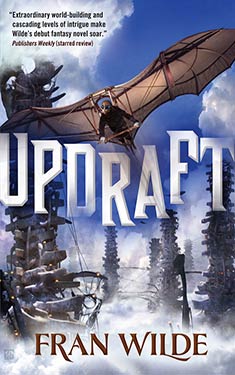
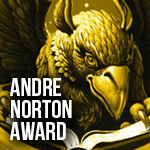 The Science Fiction and Fantasy Writers of America have announced the winner of the 2016 Andre Norton Award for Young Adult Science Fiction and Fantasy:
The Science Fiction and Fantasy Writers of America have announced the winner of the 2016 Andre Norton Award for Young Adult Science Fiction and Fantasy:
Updraft by Fran Wilde (Tor)
The award was announced with the Nebula winners over the weekend where Updraft was also a nominee in the novel category.
Our congrats to Fran and all the nominees:
- Seriously Wicked by Tina Connolly (Tor Teen)
- Court of Fives by Kate Elliott (Little, Brown)
- Cuckoo Song by Frances Hardinge (Macmillan UK 5/14; Amulet)
- Archivist Wasp by Nicole Kornher-Stace (Big Mouth House)
- Zeroboxer by Fonda Lee (Flux)
- Shadowshaper by Daniel José Older (Levine)
- Bone Gap by Laura Ruby (Balzer + Bray)
- Nimona by Noelle Stevenson (HarperTeen)
This win puts Updraft on our Award Winning Books by Women Authors list which you should definitely check out. What do you think of this result?
Science Fiction Book & Magazine News – 5/16/16
Two science fiction books grabbed my attention in the last couple of days while reading News360 and FlipBoard:
Too Like the Lightning – Ada Palmer
- “Too Like the Lightning: intricate worldbuilding, brilliant speculation, gripping storytelling” – Cory Doctorow
- “A Future Worth Having: Ada Palmer’s Too Like the Lightning” – Jo Walton
- “An interview with Ada Palmer, author of Too Like the Lightning” – My Bookish Ways
- “Science, Fiction And Philosophy Collide In Astonishing ‘Lightning’” – NPR
- Listen to the Audible sample to see if you can resist.
Central Station – Lavie Tidhar
- “Brilliant ‘Central Station’ Is Rich With Detail and Mystery” – NPR
- “Lavie Tidhar’s novel Central Station is a mosaic of posthuman problems” – ARS Technica
- “Gary K. Wolfe reviews Lavie Tidhar” – Locus Online
- “Literature’s Task Is To Pose Alternatives To Political Reality” – +972 Mag
Hundreds of science fiction books are published each year, but only a few jump out like this.
One of the odd side-effects of reading my news off of curated news apps is being directed to publications I’ve never heard of before. Take this piece from Intellectual Takeout, “Science Fiction: Why So Many Intellectuals Despise It.” This essay seems out of time, like maybe the 1950s. It defends science fiction, by reminding us of the prejudice against it. But do modern intellectuals still feel SF is worthless? But then I also saw this, “Harry Potter Causes Brain Damage, Says English Headmaster Who Is Clearly Voldemort In Disguise.”
I am reminded of an article I read decades ago that claimed librarians in the 1950s banned the Oz books by L. Frank Baum because they felt young readers picked up unrealistic attitudes towards life by reading them. I know I read the Oz books when I was a kid, and I’ve always had unrealistic attitudes toward life. Could these people be right? Then I read, “’There is just no such thing as God’: A physicist searches for meaning in the natural world,” a review of Sean Carroll’s new book, The Big Picture: On the Origin of Life, Meaning, and the Universe Itself. Are all of these folks just saying that lovers of science fiction, fantasy and religion are ignoring reality? There could be some truth in that. I know I do. But I am trying to break that habit.
Another critical examination of our genre came via The Guardian, a paper I like very much. “Sci-fi media coverage dominated by men, survey shows.” The article is based on the VIDA: Women in Literary Arts’s 2015 VIDA count. This is a gigantic demographic effort that examines race and ethnicity, sexual identity and ability in the top tier of periodical publications. Within the science fiction field they reviewed 18 publications and counted the number of books reviewed, and then did identity statistics on the authors of books reviewed and the reviewers to show how many were written by women, non-binary people and people of color.
This is an excellent article to read, but I’m not sure how they are going to solve their problem. I’m an old white male, writing about science fiction, which is their problem. My demographic traits are too common. I would assume Dave would be happy to find more writers for Worlds Without End that weren’t white and male. I used to work in computers, and we were always trying to get more female programmers. For a few years the number of women going into computer science grew, but then it dropped off. There should be more diversity everywhere, and I think everywhere is getting more diverse, but to administratively create it is difficult.
By the way, I recommend reading that article to see what are the top publications reviewing science fiction. If you aren’t a white guy, go write for them. I feel bad folks of my gender and color hog all the jobs, but I’m not sure what to do about it. I do try to read and review books by people not like me. I hope that helps.
2015 Bram Stoker Award Winner!
The Horror Writers Association have announced the 2015 Bram Stoker Award winners. The winner for Superior Achievement in a Novel is:
A Head Full of Ghosts by Paul Tremblay Paul (William Morrow)
Our congrats to Paul and all the nominees.
- The Scarlet Gospels by Clive Barker (St. Martin’s Press)
- The Deep by Michaelbrent Collings (self-published)
- The Cure by JG Faherty (Samhain Publishing)
- Black Tide by Patrick Freivald (JournalStone Publishing)
The award presentation occurred during the World Horror Convention in Las Vegas on the evening of Saturday, May 14, 2016. See the complete list of winners in all categories on the official press release.
What do you think of this result?
2015 Nebula Award Winner!
The 2015 Nebula Awards were presented May 14, 2016 in a ceremony at SFWA’s 51st Annual Nebula Awards Weekend, in Chicago. The best novel winner is:
Uprooted by Naomi Novik (Del Rey)
Our congrats to Naomi and all the other nominees.
- Raising Caine by Charles E. Gannon (Baen)
- The Fifth Season by N.K. Jemisin (Orbit US; Orbit UK)
- Ancillary Mercy by Ann Leckie (Orbit US; Orbit UK)
- The Grace of Kings by Ken Liu (Saga)
- Barsk: The Elephants’ Graveyard by Lawrence M. Schoen (Tor)
- Updraft by Fran Wilde (Tor)
Locus has the full list of winners in all categories.
Uprooted is up for the Hugo Award and the Locus Fantasy Award and, with this win, has made it onto our Award Winning Books by Women Authors list.
What do you think of this result?
Who Can Replace SF Signal?
The popular science fiction site, SF Signal closed it’s doors May 5th. There are many great sites on the internet devoted to science fiction, but I usually didn’t visit them unless SF Signal directed me with a link. I was lazy, depending on SF Signal to curate content for me. I’ll need to go elsewhere now for the two main functions I found so useful: news about science fiction books, and links to classic science fiction ebooks on sale. Their site provided immensely more content, but those two functions are what I’ll miss.
Other fans of this very useful site are going to miss SF Signal for other reasons. I’ve been wondering how many sites we’ll have to visit each day to make up for our loss. Now, don’t get me wrong, I’m not trying to bum out John DeNardo and crew because they left us. I understand, after almost thirteen years of relentless work they deserve a break. I just wonder who might provide some of the tasks they did so well. This would be a great time for a young person to jump in and start a site.
I’m going to mention just some of the locations I’ll have to visit to keep up with just the content I got from SF Signal. If you use programs like Feedly for RSS feeds, you could cobble together something like the daily “SF/F/H Link Post” – but it will require a whole lot more scanning time. I often saw many of its daily stories come through on News360 and FlipBoard, but never anything like all of them.
First, and foremost, I believe writers and publishers are going to miss SF Signal the most. SF Signal was great at promoting new novels, collections, anthologies and magazines. It’s daily “SF/F/H Link Post” was one-stop shopping for all the news about science fiction, fantasy and horror books, as well as media related news. They began the list with links to interviews, which I’m sure help new writers get noticed. They also published long lists of forth coming books and books received, published book reviews, and linked to books reviewed. Their regular feature “Mind Meld” let readers and writers reference older books that need remembering. All of this was a goldmine for book promotion. Here are some good sites to follow to keep up with the science fiction book world.
- Locus Magazine
- io9
- Tor.com
- Science Fiction.com
- SFBook Reviews
- SFFWorld
- SciFiNow
- File 770
- SFWA
- BookRiot
Of course SF Signal also covered movies, television, games, and other related media, as well as the fantasy and horror genres. My focus is SF books, so lists of alternate sites will have to be much longer if you want cover all the territory.
After the news, the thing I’m going to miss most are the list of bargain ebooks. I’ve built quite a library of classic science fiction books on my Kindle with SF Signal posts like “200+ SF/F/H eBooks for $5 Each or Less.” Not only did I love snagging old favorite books I read as a kid for $1.99, but I really enjoyed seeing all the book covers. It was rows of three with the sale ebooks, but larger rows of two, in the Books Received section. Take a look at the January-June 2016 list, and tell me you don’t like seeing the covers? Isn’t that a wonderful way to shop for books? I don’t know any site that takes the time to link to so many covers. I could go to my favorite bookstore and pull books off the shelf one at a time to look at covers, but this feature makes the job much easier.
I asked John how he tracked down all those book deals and he sent me these links:
Even subscribing to all of these daily newsletters of book bargains, they don’t provide the convenience of that SF Signal did with their sale posts. And that must have been a tremendous amount of work creating all those links
I hope some enterprising young person sets up a web site that offers just these two features. Links to all the great stories about SF/F/H on the web that comes out each day, and links to all the sale ebooks for SF/F/H. Actually, I’d be happy with a site that just focused on science fiction. But even narrowing the work down to one genre, it would probably take several hours a day to keep up with the task. Can you imagine doing that for thirteen years?
Web sites come and go. Especially ones that are essentially labors of love. Sure you can make money off the web, but it’s hard. Corporations with large bankrolls struggle every day. I hope SF Signal finds someone to host their archive, because I’d hate to see all that effort disappear. But I do think we’re seeing an interesting dynamic on the internet. The net has been around long enough for sites we once assumed would be there forever to disappear. I’ve known a number of folks who have burned out. I’m not sure users of the net understand the kind of work that’s involved with maintaining useful web sites. We have to salute the crew at SF Signal for working so hard for so long. (Long enough to attend kindergarten through high school graduation.)



















 Full Details
Full Details
